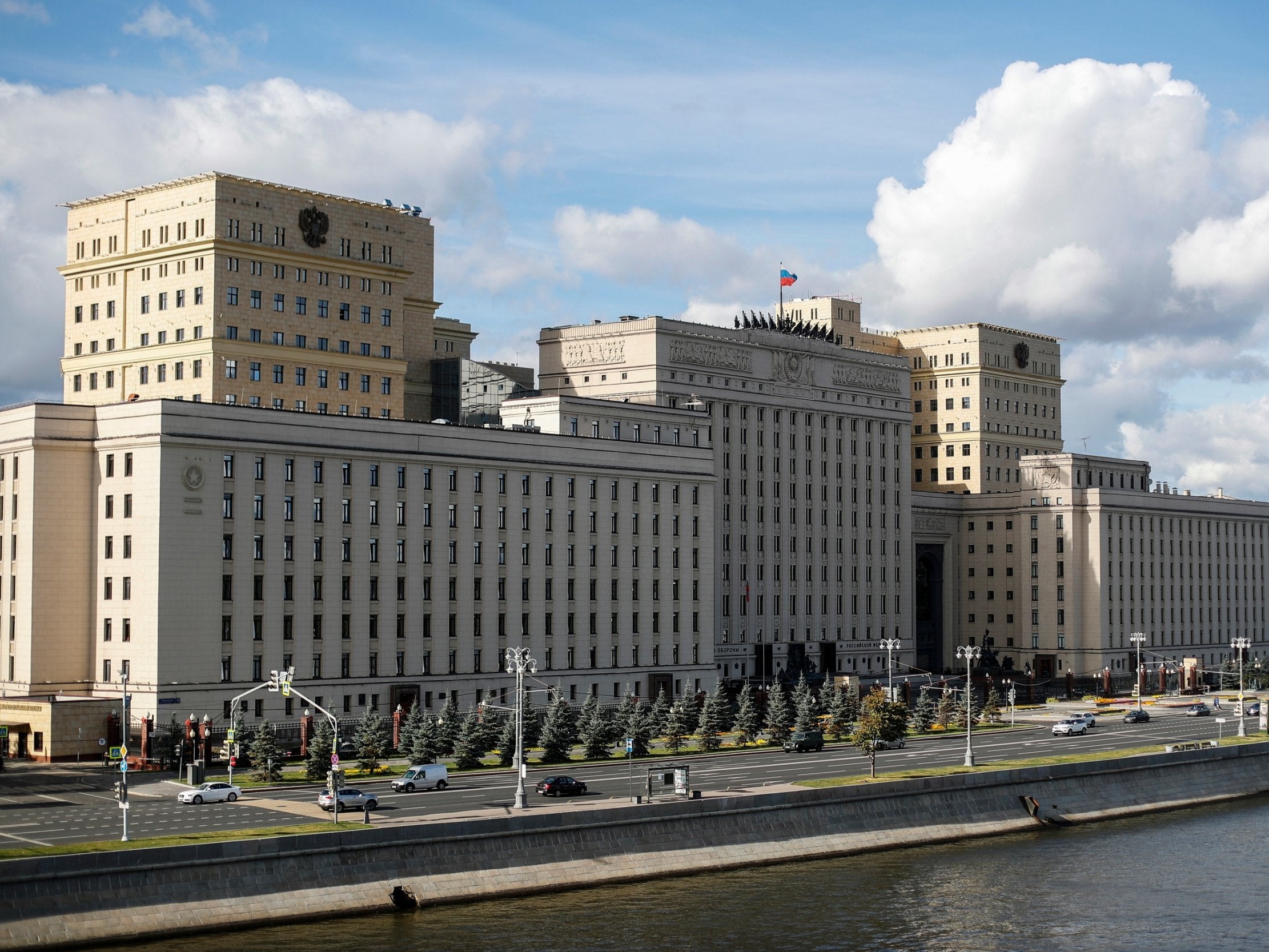Russia paints itself victim of sinister US biochemical weapons programme to distract from global condemnation of cyberattacks
Claims from Russia came as UK and allies said Moscow had to be held accountable for series of cyberattacks

Your support helps us to tell the story
From reproductive rights to climate change to Big Tech, The Independent is on the ground when the story is developing. Whether it's investigating the financials of Elon Musk's pro-Trump PAC or producing our latest documentary, 'The A Word', which shines a light on the American women fighting for reproductive rights, we know how important it is to parse out the facts from the messaging.
At such a critical moment in US history, we need reporters on the ground. Your donation allows us to keep sending journalists to speak to both sides of the story.
The Independent is trusted by Americans across the entire political spectrum. And unlike many other quality news outlets, we choose not to lock Americans out of our reporting and analysis with paywalls. We believe quality journalism should be available to everyone, paid for by those who can afford it.
Your support makes all the difference.Russia has accused the US of developing a chemical and biological weapons programme along its borders.
The claims came Thursday at the same time as the UK and the Netherlands were accusing Russian spies of being behind an attempted attack on the OPCW in the Hague.
General-Major Igor Kirillov, commander of Russia’s radiological, chemical and biological defence troops, said Moscow based its conclusion on documents released by former minister of Georgian state security, Igor Giorgadze.
The general said Russia agreed with Mr Giorgadze's assertion that Georgia was running a chemical and biological weapons laboratory on behalf of the Pentagon. The Richard Lugar Research Center near Tbilisi had a suspicious extension built in recent years, he said, with two floors expressly devoted to the US military. Georgian staff had very limited access to these floors – and it was this reason alone that they had been unable to produce evidence of chemical weapons.
Slide after slide, laser pen circle after laser pen circle, the Russian general hinted at the evil intent of US plans.
There were documents showing permission for biological matter to be carried in US diplomatic briefcases into Georgia (“what could that be for?” asked the general). Contracts for research into rabies, dengue fever, anthrax, atypical plague and other infectious diseases (“why those diseases?”). A contract for the collection of Russian genetic data (“could that really be for innocent medical research?”). There were patents for bullet-like “delivery capsules” (“that’s evidence of contactless warfare”).
The general then presented a map showing labs “controlled by the Pentagon” in countries around Russia’s borders.
“Russia will not allow the United States to carry out biological experiments near its borders,” he declared.
No questions and answer session was offered. But few of the audience of military attaches and journalists gathered – most of whom had by now very sore heads – will have failed to notice the unusual timing of the event.
The press conference had been hastily announced late on Wednesday, at a moment that Russia likely understood it would soon be announced that four of its citizens had been expelled from the Netherlands over an attempted cyberattack on the OPCW. The bulk of Mr Giorgadze’s accusations, meanwhile, were already clear on 11 September, when he accused the US of carrying out experiments on people.
The US and Georgia angrily rejected those claims within a day. They say the Richard Lugar Centre is aimed purely at reducing bio-risk, and containing diseases from spreading globally.
For some reason, the Russian Ministry of Defence waited until today to reveal their own analysis.
Join our commenting forum
Join thought-provoking conversations, follow other Independent readers and see their replies
Comments